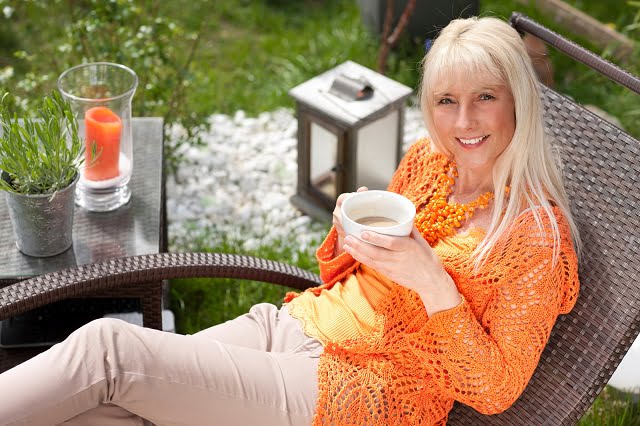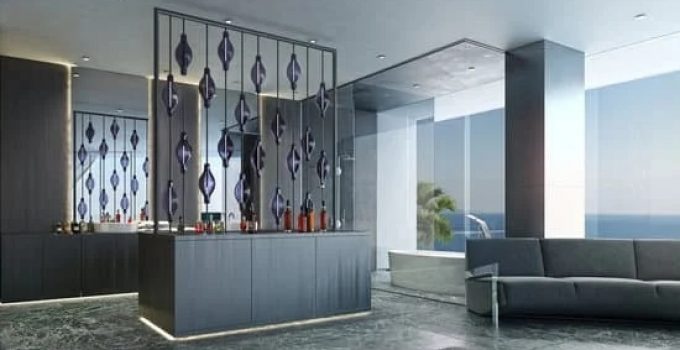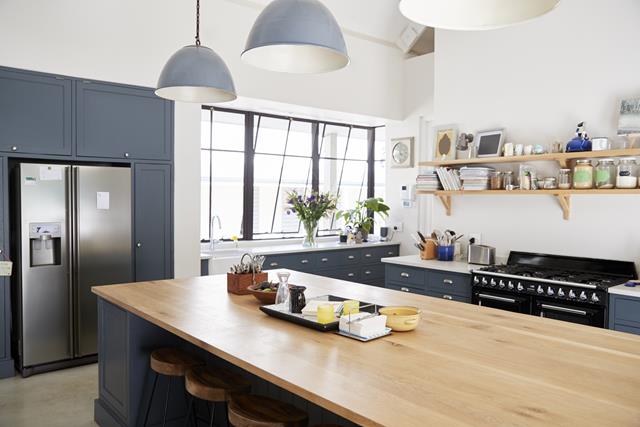Decorating a home is not just about making it look aesthetically pleasing, but also ensuring that it serves its purpose in a functional way. In this article, we will explore how to decorate your home for function, focusing on practical design choices and solutions that make your living space work for you. From assessing your lifestyle and needs to incorporating smart home technology, we’ll cover everything you need to know to achieve a beautifully functional home.
Understanding the purpose of each room is essential when it comes to decorating for function. Whether it’s creating a cozy and inviting living room or a productive and organized home office, each space should be tailored to serve its specific function while still maintaining style and comfort. It’s about finding the balance between form and function, making sure that every design choice enhances the usability of the space.
When it comes to functional home decor, furniture selection plays a crucial role. Choosing pieces that not only look great but also offer practicality and versatility is key. Additionally, organization, storage solutions, proper lighting, multi-functional decor, flow and accessibility are all important aspects to consider when designing a space that is both beautiful and highly functional. Stay tuned as we delve into each of these areas in detail throughout this article.
Assessing Your Lifestyle and Needs
When it comes to decorating your home for function, it is important to start by assessing your lifestyle and needs. Understanding the purpose of each room in your home will help you make design choices that are both practical and aesthetically pleasing. Whether you have a busy family household or live alone, taking the time to evaluate how you use each space will guide you in creating a functional and tailored living environment.
Evaluating Your Daily Activities
Take a moment to consider how you and your family spend time in each room. Are there specific activities that take place in certain areas of the house? Do you work from home, entertain guests frequently, or have children who need a designated play area? By identifying the primary functions of each room, you can prioritize what elements are most important for the space.
Assessing Storage Needs
Another key aspect of understanding the purpose of each room is assessing your storage needs. For instance, if you have a home office, consider what kind of storage solutions would best suit your work requirements. If you have a child’s playroom, think about how to incorporate storage for toys and games that allows easy access for playtime but also keeps things organized when not in use.
By taking the time to assess your lifestyle and needs within each room, you can create a home that not only looks great but also functions seamlessly for your daily activities. This thoughtful approach will guide your design choices as you select furniture, lighting, decor, and organizational solutions that cater to your specific requirements.
Furniture Selection
When it comes to decorating a home for function, one of the most important aspects to consider is furniture selection. Choosing pieces that serve both form and function can greatly impact the overall usability and aesthetic of a space. In this section, we will explore how to select furniture that not only looks great but also adds practical value to your home.
The key to choosing functional furniture is to assess your lifestyle and needs, as well as the purpose of each room. For example, in a living room where you entertain guests, you may want to opt for a comfortable yet stylish sofa with built-in storage for extra blankets or pillows. In a bedroom, opting for a bed frame with under-bed storage can help maximize space and minimize clutter.
In addition to practical considerations, it’s also important to choose furniture that complements the design aesthetic of your home. Finding pieces that balance both style and functionality can enhance the overall look and feel of your space while also serving a practical purpose.
When selecting furniture for your home, it’s important to keep in mind factors such as size, material, durability, versatility, and comfort. By carefully considering these elements, you can choose pieces that not only look great but also make your home more functional and enjoyable to live in.
| Aspect | Considerations |
|---|---|
| Size | Consider the dimensions of the room and how the furniture will fit into the space. |
| Material | Choose materials that are both durable and complement your design aesthetic. |
| Versatility | Look for multi-functional pieces that can serve multiple purposes in different rooms. |
Organization and Storage Solutions
In order to achieve a functional and well-decorated home, it is essential to focus on organization and storage solutions. A cluttered space can often lead to a chaotic and unproductive environment, so it is important to maximize space and minimize clutter in each room of your home. In this section, we will explore how to effectively organize and store your belongings in a way that enhances the functionality and aesthetic of your living space.
When considering organization and storage solutions for your home, it is crucial to assess the specific needs of each room. For example, the requirements for organizing a bedroom will differ from those of a kitchen or living room. Consider implementing furniture pieces that offer built-in storage options such as ottomans with hidden compartments, bed frames with under-bed drawers, or coffee tables with shelves and drawers.
In addition to furniture with built-in storage, investing in organizational tools such as bins, baskets, shelving units, and closet systems can greatly contribute to maintaining an organized and clutter-free home. By incorporating these elements into your decor, you can create designated spaces for items while also adding visual appeal to your rooms.
| Organization Solution | Description |
|---|---|
| Built-in Storage Furniture | Pieces like ottomans with hidden compartments or bed frames with under-bed drawers. |
| Organizational Tools | Bins, baskets, shelving units, closet systems. |
Lighting
Task Lighting
Task lighting is essential for areas where specific activities take place, such as the kitchen or office. It provides focused light that enables you to see clearly and perform tasks with ease. When selecting task lighting, consider fixtures that can be adjusted or directed to illuminate work surfaces effectively.
Ambient Lighting
Ambient lighting sets the overall mood and atmosphere of a room. This includes overhead fixtures, wall sconces, and other soft sources of light that evenly distribute illumination throughout a space. To enhance functionality, opt for dimmable ambient lights that allow you to adjust the brightness according to different activities and times of day.
Accent Lighting
Accent lighting adds depth and highlights architectural features, artwork, or other decorative elements in your home. By strategically placing accent lights, you can draw attention to certain areas and create visual interest within a room. Use accent lighting to complement both the function and aesthetics of your living space.
By carefully considering these different types of lighting and how they can enhance your home’s functionality and ambiance, you can create a well-lit environment that meets your specific needs while also adding an inviting atmosphere to every room.
Multi-Functional and Versatile Decor
When it comes to decorating your home for function, finding pieces that can serve multiple purposes is key. By incorporating multi-functional and versatile decor into your living space, you can maximize the use of each item while also minimizing clutter. Here are some tips on how to find and utilize these types of pieces in your home:
- Convertible Furniture: Look for items such as sofa beds, storage ottomans, or dining tables that can expand or transform to serve different functions. This allows you to make the most out of your space without sacrificing style or comfort.
- Modular Shelving: Utilize shelving units that can be customized and rearranged to fit different spaces and storage needs. This type of shelving provides flexibility and adaptability, allowing you to change the layout as needed.
- Multipurpose Decor: Consider decor items that can serve dual purposes, such as decorative baskets that also provide storage, or mirrors that double as jewelry organizers. These items not only add visual interest to your home but also contribute to its functionality.
By incorporating multi-functional and versatile decor into your home, you can create a space that is both practical and stylish. With some thoughtful planning and creativity, you can find pieces that serve multiple purposes while adding value to your living space.
Remember to assess your lifestyle and needs when considering multi-functional decor options. Think about how each item will be used in your daily routines and choose pieces that will enhance the functionality of your home. With the right combination of versatile decor, you can achieve a space that is efficient, organized, and tailored to your specific needs.
Designing for Flow and Accessibility
When it comes to creating a functional home, one of the key aspects to consider is the design for flow and accessibility. This involves creating a space that is easy to navigate and use, making everyday activities more efficient and enjoyable. To achieve this, it’s important to take into account the layout of the home, as well as the placement of furniture and other elements within each room.
One way to design for flow and accessibility is to carefully consider the traffic patterns within each room. Think about how people move around the space and ensure that there are clear pathways from one area to another. This may involve rearranging furniture or eliminating obstacles that disrupt the natural flow of movement. By doing so, you can create a more user-friendly environment that enhances the functionality of your home.
In addition to considering traffic patterns, it’s also important to pay attention to the accessibility of various features within your home. For example, if you have any family members with mobility issues, it’s crucial to ensure that all areas of the home are easily accessible for them. This may involve installing ramps or handrails, lowering shelves or cabinets, and choosing furniture that is designed with accessibility in mind.
By designing with accessibility in mind, you can create a space that is not only functional but also inclusive for everyone who uses it. Overall, by carefully considering flow and accessibility during the decorating process, you can create a home that is both beautiful and highly functional for all who inhabit it.
Incorporating Smart Home and Technology
When it comes to decorating your home for function, embracing smart home technology can be a game-changer. Not only does it add convenience and efficiency to your daily life, but it can also enhance the overall functionality of your living space. Here are some ways you can incorporate modern advancements into your home decor:
- Smart Lighting: Installing smart light bulbs or automated lighting systems can allow you to control the ambiance and brightness of your home with just a tap on your smartphone. This not only adds convenience but also contributes to energy savings.
- Home Automation Systems: Investing in a smart home hub or system can centralize control over various aspects of your home, such as security, temperature, and entertainment. This integration can streamline daily tasks and improve the overall functionality of your living space.
- Multi-Functional Furniture with Tech Integration: Look for furniture pieces that incorporate modern technology, such as built-in charging stations or wireless charging capabilities. This allows you to maximize both form and function within your décor.
By incorporating these modern advancements into your home decor, you can significantly increase the functionality and efficiency of your living space. From controlling the ambiance with smart lighting to streamlining tasks through home automation systems, embracing technology can truly elevate the way you interact with and utilize your home.
Remember that when integrating smart home technology into your decor, it’s essential to prioritize user-friendly systems that seamlessly blend with the aesthetics of your living space. With thoughtful consideration and strategic placement, technology can be seamlessly integrated into your home decor for enhanced functionality without sacrificing style.
Conclusion
In conclusion, creating a beautifully functional home involves a thoughtful and intentional approach to design choices and practical solutions. A well-decorated home should not only be visually appealing but also cater to the needs and lifestyle of its inhabitants.
By understanding the purpose of each room, selecting furniture that serves both form and function, maximizing space with organization and storage solutions, enhancing functionality and ambiance with lighting, finding multi-functional decor pieces, designing for flow and accessibility, and incorporating smart home technology, you can achieve a space that is both aesthetically pleasing and highly functional.
Assessing your lifestyle and needs is crucial when it comes to decorating your home for function. Consider how each room will be used and what specific requirements it needs to meet.
For example, if you have a busy family life, your living room may need to be both comfortable for relaxation and durable enough to withstand heavy use. Taking the time to think about these factors will allow you to make informed decisions on furniture, layout, and design elements that will contribute to the overall functionality of your space.
Furthermore, incorporating smart home technology into your design can greatly enhance the functionality of your home. From automated lighting systems to smart appliances, these modern advancements can streamline daily tasks and improve efficiency within the household.
By carefully considering all aspects of design from furniture selection to technological integration, you can create a space that not only looks good but also works in perfect harmony with your lifestyle. Ultimately, achieving a beautifully functional home requires a balance between aesthetics and practicality which can be achieved through deliberate design choices guided by the specific needs of those who call it home.
Frequently Asked Questions
How to Decorate Your House on Special Occasion?
Decorating your house for a special occasion can be an exciting way to set the mood for the celebration. You can start by choosing a theme and color scheme that fits the occasion.
Then, you can add decorative elements like banners, balloons, flowers, and candles to create a festive atmosphere. Consider using personalized touches such as photos, artwork, or sentimental items to make the space feel more special and meaningful.
How to Decorate a Function Room?
When decorating a function room, consider the purpose of the event and the preferences of the guests attending. Start by assessing the layout of the room and determining where to place key elements like seating, tables, and any focal points such as a stage or speaker area.
Choose suitable decorations that complement the theme or purpose of the event, such as table centerpieces, wall hangings, lighting, and other decorative accents. Make sure to also consider practical aspects like ensuring there is enough space for movement and activities.
How Can I Decorate My House for a Party?
Decorating your house for a party can be a fun way to create an inviting atmosphere for your guests. Begin by cleaning and decluttering the space before adding any decorations. Consider using items like streamers, banners, string lights, tablecloths, and themed decor relevant to your party’s theme.
Don’t forget about creating ambiance with music and lighting – these elements can significantly enhance your decor efforts! Lastly, it’s essential to consider both indoor and outdoor spaces if you plan on having activities in both areas.

Hello, lovely readers! I’m Sheila Collins, and I’m delighted to be your trusted guide on this exciting journey of home improvement, design, and lifestyle. As the founder and editor-in-chief of Home Guide Blog, I’m passionate about all things related to homes, and I’m here to share my knowledge, experiences, and insights with you.





